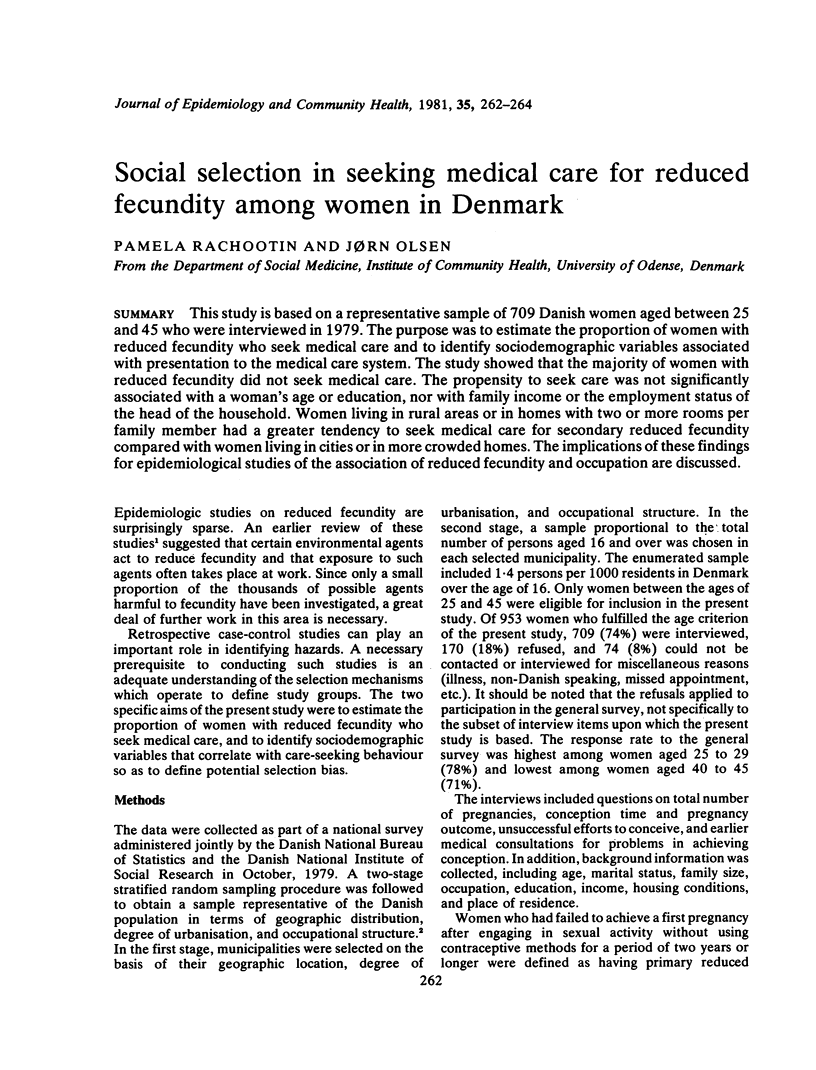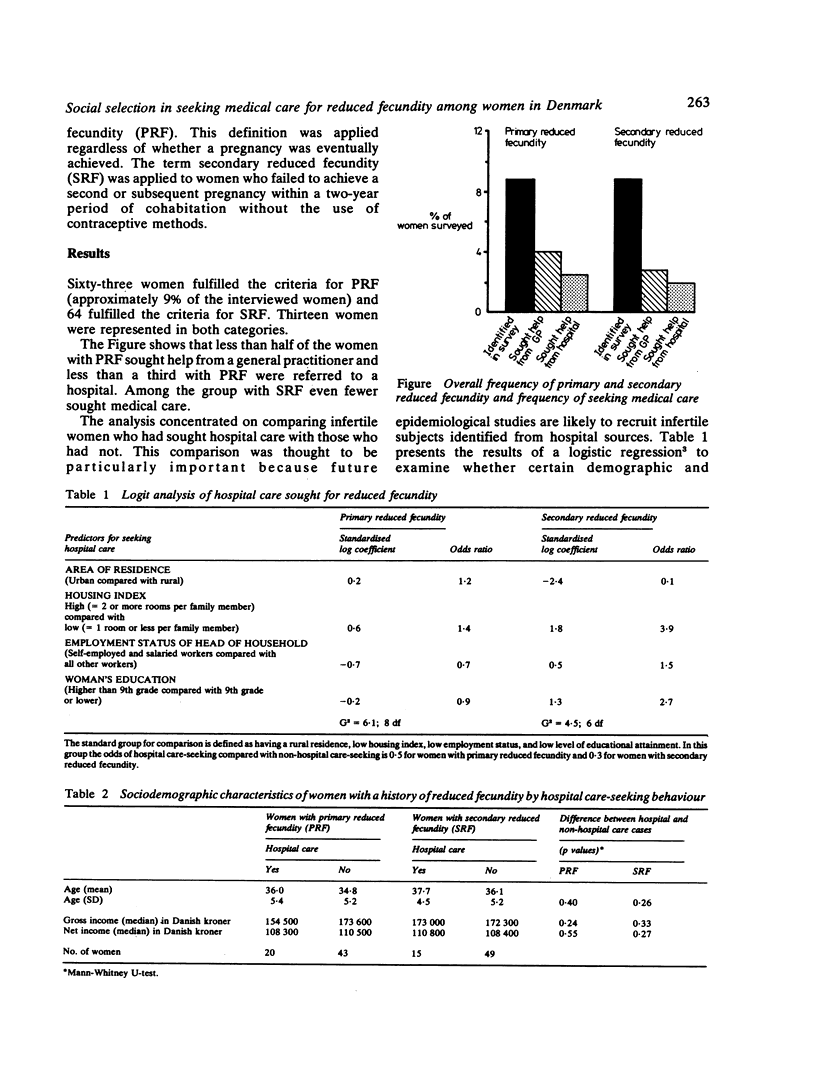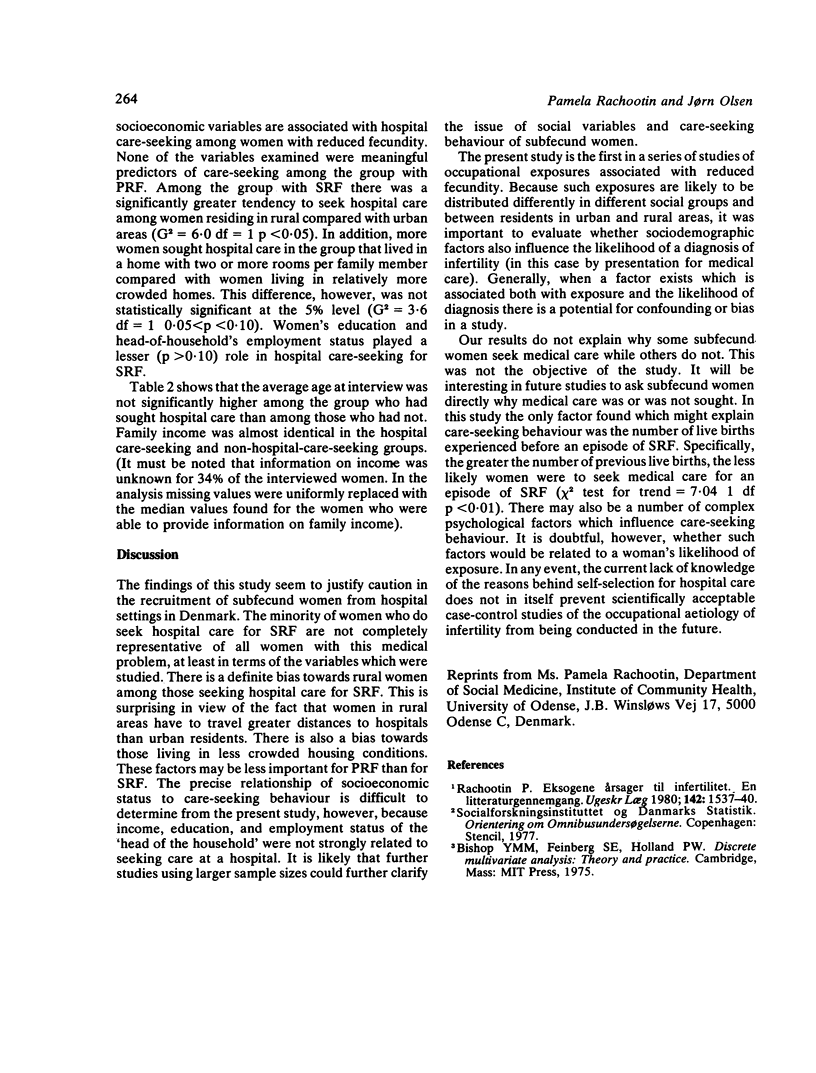Abstract
This study is based on a representative sample of 709 Danish women aged between 25 and 45 who were interviewed in 1979. The purpose was to estimate the proportion of women with reduced fecundity who seek medical care and to identify sociodemographic variables associated with presentation to the medical care system. The study showed that the majority of women with reduced fecundity did not seek medical care. The propensity to seek care was not significantly associated with a woman's age or education, nor with family income or the employment status of the head of the household. Women living in rural areas or in homes with two or more rooms per family member had a greater tendency to seek medical care for secondary reduced fecundity compared with women living in cities or in more crowded homes. The implications of these findings for epidemiological studies of the association of reduced fecundity and occupation are discussed.
Full text
PDF




